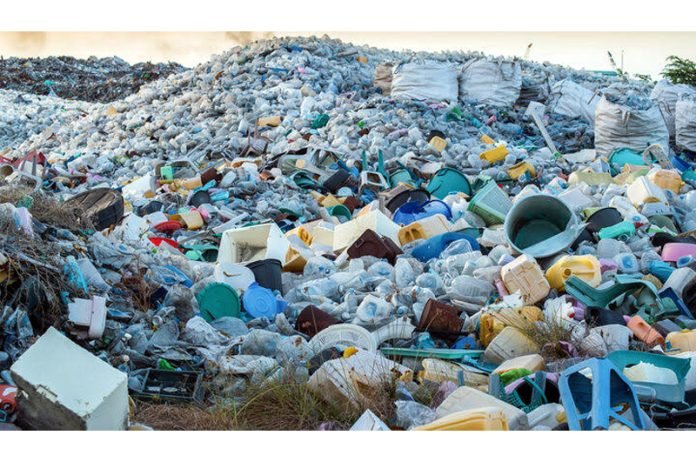Plastic pollution remains one of the most pressing environmental challenges worldwide. The Union Territory (UT) of Jammu and Kashmir has demonstrated significant progress in tackling this issue by enhancing its plastic waste management infrastructure. The establishment and operation of 32 Material Recovery Facilities (MRFs) in Jammu & Kashmir signify a critical step towards combating environmental degradation caused by plastic waste.
Increasing Recycling Rates: A Promising Outlook
As reported in Daily Excelsior newspapar, Jammu and Kashmir’s recycling efforts have seen marked improvement, as reflected in recent data. In the fiscal year 2023-24, the UT achieved a 52.82% recycling rate for plastic waste, up from 49.95% in 2022-23. This progress underscores the region’s commitment to reducing the environmental impact of plastic waste, despite the rising volume of waste generated.
The increase in recycling rates comes amidst a sharp growth in plastic waste generation. The region produced 146.14 Metric Tons (MT) of plastic waste in 2023-24, compared to 124.48 MT in the previous year. While the progress in recycling 77.2 MT of waste this year is commendable, the escalating waste volume highlights the need for more robust interventions.
Role of Material Recovery Facilities in Waste Management
Material Recovery Facilities (MRFs) have become pivotal in Jammu and Kashmir’s waste management strategy. These facilities enable the efficient collection, segregation, and channelization of plastic waste for recycling. By processing waste that would otherwise pollute landfills, rivers, and public spaces, MRFs serve as a cornerstone in the UT’s fight against plastic pollution.
As consumption increases, the burden on waste management infrastructure grows. The operational MRFs, coupled with stringent regulations, play a critical role in mitigating this burden. Their success demonstrates the potential for scaling up these facilities to handle the increasing waste volumes effectively.
Initiatives to Curb Plastic Pollution
The Jammu and Kashmir Pollution Control Committee (JKPCC) has launched several initiatives aimed at reducing plastic pollution. Notable measures include:
- Ban on Single-Use Plastics (SUPs):
The ban on single-use plastics below 120 microns is a vital regulatory step. By promoting sustainable alternatives like cloth bags, the UT aims to reduce reliance on harmful plastics. - Distribution of Cloth Bags:
Corporate Social Responsibility (CSR) initiatives have distributed 10,000 cloth bags across districts, encouraging citizens to adopt eco-friendly practices. - Enforcement Measures:
Strict fines against violators of plastic regulations and a crackdown on the production and sale of SUPs have reinforced the administration’s commitment.
Challenges in Plastic Waste Management
While Jammu and Kashmir’s efforts are commendable, several challenges persist:
- Decrease in SUP Seizures:
A drop in seizures of SUPs, from 40.67 MT to 19.33 MT, indicates improved regulation but also suggests a potential shift towards informal channels of plastic production and distribution. - Public Awareness and Behavioral Change:
Encouraging widespread behavioral change remains a challenge. Public awareness campaigns need to be intensified to sustain progress. - Infrastructure Expansion:
The increasing volume of plastic waste demands continued investment in waste management infrastructure, including additional MRFs and advanced recycling technologies.
Read also: All About the Z-Morh Tunnel: A Strategic Gateway in Jammu and Kashmir
Future Outlook: Towards a Plastic-Free Jammu and Kashmir
Jammu and Kashmir’s proactive approach to plastic waste management has laid a strong foundation for sustainability. However, achieving a plastic-free region requires sustained efforts in key areas:
- Enhanced Recycling Programs:
Expanding recycling initiatives and upgrading technologies will help manage the growing waste effectively. - Stronger Regulations:
Continued enforcement of plastic regulations and vigilant monitoring of informal plastic production channels are essential to ensure compliance. - Community Engagement:
Public participation is critical to the success of waste management initiatives. Educational campaigns and incentives can foster community involvement.
Jammu and Kashmir’s strides in plastic waste management are a testament to the region’s commitment to environmental sustainability. With a growing network of MRFs, stricter regulations, and public awareness initiatives, the UT is on the right track to combat plastic pollution. However, the journey towards a plastic-free region is far from complete. Sustained efforts, innovative solutions, and collective action will be essential to achieving this ambitious goal.
By addressing the challenges and leveraging the progress made so far, Jammu and Kashmir can set an example for other regions striving for sustainability. The target may be difficult, but with determination and collaborative efforts, it is undoubtedly achievable.
















